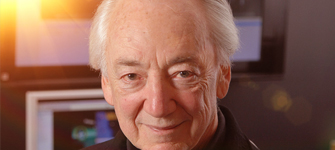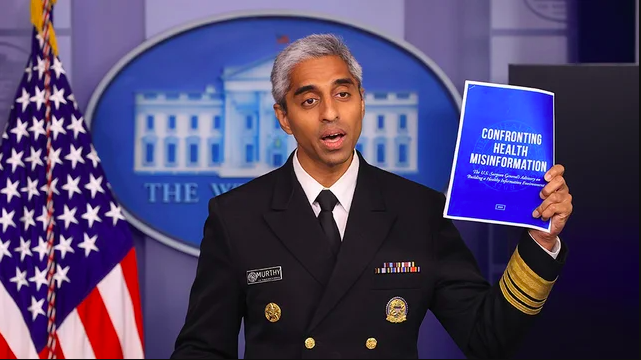In spring, thousands of annuals are added to the stunning ornamental gardens of Mount Auburn Cemetery, where sweeping vistas come to life with the colors of more than 1,500 blooming flowers and 700 varieties of trees. An oasis of vegetation laid out in the 1830s, the cemetery inspired the design of Abney Park in London and is credited as the catalyst to the public parks and garden movement in the U.S.
Winding roadways that cut through its grounds like rivers were originally designed for horse and wagon. Over 220 species of birds have been spotted among its nearly 100,000 tombstones and monuments. A marvel, Mount Auburn yearly hosts over 100 programs, from butterfly tours to wine tastings.
It’s here, four miles west of Boston, where Charles Nesson takes cryptic but colorful morning walks. In 2002, after the 76-year-old admitted to smoking joints on jaunts through the cemetery – often before teaching classes at Harvard University – the story made national news.
Tenured at Harvard Law since 1969, only three years after he started on campus, the septuagenarian has served since as something of a resident rebel. His vocal support of cannabis has proven academically polarizing. He’s been criticized by his peers for publishing confidential emails and was nearly lynched by the Black Law Students Association when he offered to defend students’ use of racial epithets.
On campus, he still tiptoes daily on a Shakespearean tightrope between comedy and tragedy.
Nesson’s eccentric ways have earned him the ire and respect of many at Harvard, where his reputation as a brilliant but frustrating academic precedes him. As an undergrad, professors on campus used to joke that only God and he could understand his papers. He’s one of only a handful of people to have graduated summa cum laude from Harvard Law and is rumoured to have achieved the highest GPA since Felix Frankfurter in 1907.
An expert in civil liberties, his irreverent teaching style has been at the helm of courses in law and evidence for most of the last half-century. In 1997, he helped write the early history of cyberspace law by co-founding the Berkman Center for Internet and Society. At the head of a program on the trials in Second Life, he’s represented by his avatar “Eon.”
A sort of dharma warrior of the highest order – a man who sees social justice as the surest manifestation of the utopic human condition – Nesson believes that cannabis plays as significant of a role in academia as academics, like himself, do in cannabis.
“The idea that we have this behemoth of criminal prosecution directed toward consumers of a plant, an ordinary plant, an herb, is so preposterous that you confront academically the discontinuity between what makes sense and what we are made to accept as our surrounding reality,” he says, concluding: “Academically, that’s very useful.”
Nesson’s influence has extended beyond the stuffy corridors of Ivy League academia. He practices what he teaches.
In 1966, as a special assistant in the Department of Justice’s civil rights division, Nesson brought about the first convictions ever leveled at Ku Klux Klan members before an all-white jury in Alabama for violence against black citizens. The case helped make race and gender-based jury selection in the state unconstitutional.
Forty years later, he represented the founder of NORML and publisher of High Times as they challenged Massachusetts possession laws after being charged for sparking up at the Boston Freedom Rally. Both were found guilty and sentenced to a day in prison. Nesson wasn’t pleased and planned an appeal.
When Boston University graduate Joel Tenenbaum was notoriously accused by Sony of breaking U.S. copyright laws for sharing 30 songs on Kazaa, it was Nesson who stepped in to defend him. Only the second file-sharing case to go to verdict in the anti-downloading crusade launched by the Recording Industry Association of America, Tenenbaum was eventually found guilty and fined a ghastly $675,000. Despite the defeat in a case his colleagues advised him against taking, Nesson looked on the experience as a unique opportunity to take on the recording industry’s “assault on what I think of as the digital-native generation.”
Most recently, Nesson’s served as pro-bono counsel to the Westmoreland Hemp and Ganja Farmers’ Association. In Jamaica, he’s working to advance restorative justice in a country that has transitioned from slavery to independence and, as he says, “been taken to the cleaners by colonial rule.”
Intimately immersed in the cannabis conversation on the island, he’s been on the front lines of recent drug reforms since April 2014. Last year, when the Jamaican government moved to decriminalize cannabis in hopes of quelling gang violence tied to the country’s cannabis trade, he rejoiced alongside the island’s long-persecuted Rastafari.
Still, Nesson believes, the current scene in the Caribbean serves as a case study in the cautious optimism that characterizes current cannabis reforms the world over.
Where medical, recreational and sacramental provisions have been added to the new cannabis laws in Jamaica, so too, says he, must commercial considerations be made. Responsible economics, Nesson says, can help serve as a means of turning the page on decades of cannabis oppression and prohibition.
“I believe what is potentially starting in Jamaica has got to start small. If it’s run on rocket fuel at the beginning or in some way taken over by the intelligence of international capitalism, it’s just going to wipe out,” he says. “The Rastafari want profit in the sense of needing to make money in order to have the funds to do what they’re doing, but they want profit not to compromise principle. Principle is first, profit comes second.”
In Jamaica and across the globe, Nesson says the reform movement will continue to face challenges as changes – cultural, ideological and commercial – take shape. The success or failure of cannabis as an industry, he believes, will be not be dictated by who writes the laws or even what they entail, but by how those laws are interpreted by the players that hold the power.
“I think of it as a rhetorical space, rather than just as a legal space. The question is: how does the world look at this plant? Is it seen as a dangerous drug? Is it seen as a threat? On the other hand, is it seen as something that’s pacific? Law is interpreted by those who hold the power.”











